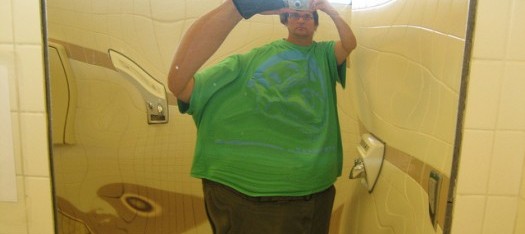PSFK has partnered with Boehringer Ingelheim to bring you a snapshot of Ten Innovative Ideas each week that are reshaping the health care industry. Continue reading below for the most exciting ideas from the past seven days.

For Boomers, Doctor Knows Best When It Comes To Apps
A recent poll conducted by Mitchell Research and Communications revealed the power that doctors have in recommending apps for chronic and life threatening diseases. The 600 Baby-boomers surveyed said they are more willing to download a health and wellness app based on their doctor’s recommendation. Mobile users that responded to the survey were much less likely to download an app recommend by their family or friends, 18 and 5 percent respectively. Patients with chronic or life threatening conditions were 70 percent more likely to download an app to track their medical issues, while only half of users would download an app looking for general information or weight loss help. The survey should help prove how influential doctors can be in helping patients monitor their own health and extending their patient’s lives and quality of living.

Can Thinking You’re Fat Make You Fat?
Research findings have found that normal-weight teens who perceive themselves as fat are more likely to grow up to be overweight as adults. Findings out of the Norwegian University of Science and Technology show that the stress associated with gaining weight can cause teens to radically change their daily eating habits and sometimes skipping entire meals – behavior which can lead to obesity. Research was conducted on a group of nearly 1,200 normal-weight teenagers of both sexes between 1995-1997, with a follow up between 2006-2008 when they were between 24-30 years old. Nearly 60% of participants who felt fat as teenagers became overweight in adulthood.
Voice Activated Camera Ring Lets Visually Impaired Point At Objects For More Info
MIT researchers have developed a camera-equipped ring meant to help the visually impaired find objects and read text. Users wear the EyeRing on their pointer finger, which allows them to simply point at any object they wish to identify. The EyeRing snaps a picture of the object and beams it to the user’s Android smartphone via a Bluetooth connection, where an app processes and identifies the image aloud through a digital voice for the user to hear. EyeRing can identify text, colors, currency and prices on price tags.

Digital Bracelet Detects If Medical Staff Need To Wash Their Hands
Israeli startup company, Hyginex, has developed a simple system to reduce healthcare risks around hospitals and medical practices. The company has created digital bracelets that work alongside sensor-embedded soap dispensers to detect if the user has washed their hands properly. The non-intrusive bracelet has a tiny red LED light to also remind the medical practitioner to wash their hands between patients. The technology works via a wireless connection and the hygiene regime is tracked and passed on to hospital managers. According to the CDC, poor hand hygiene lead to infections that are responsible for over 90,000 deaths per year in the U.S., a cost of over $30 billion.
http://youtu.be/Vv6RwdqMQJg
Electronic Glove Helps Doctors Diagnose Breast Cancer
Med Sensations is prototype for an electronically-enhanced glove to empower physician’s touch during physical evaluations, marrying human interaction with the effectiveness and sensitive of sensors. The glove has pressure sensors for each finger, as well as vibration, sound, accelerometer and eventually micro ultrasound sensors. The glove would be helpful in breast cancer and other sub-dermal diagnoses as the doctor would be able to use their amplified sense of touch to understand the internal conditions of their patients. The glove would also be helpful in the education setting, letting instructors set off buzzers alerting students to instances when they are applying too much pressure or not enough. Harvard medical student Andrew Bishara, and a pair of engineers, Elishai Ezra and Fransiska Hadiwidjana, created the glove helping doctors to quantify touch as part of Singularity University’s 10-week Graduate Studies Program.
Check the rest out here:
via PSFK: http://www.psfk.com/2012/09/psfk-picks-top-10-health-innovations-of-the-week-16.html#ixzz25lK9oKyU













